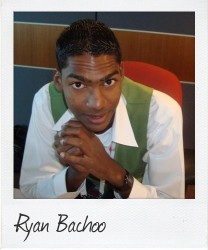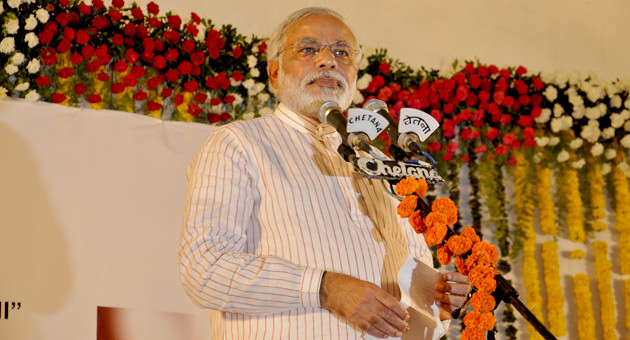"The challenge of being popular at home and abroad"
November 17 Modi and Obama are similar in their world-wide prominence, writes Ryan Bachoo, 25, a Commonwealth Correspondent from Trinidad and Tobago, but Obama’s challenges in maintaining popularity may hold lessons for Modi.
Modi and Obama are similar in their world-wide prominence, writes Ryan Bachoo, 25, a Commonwealth Correspondent from Trinidad and Tobago, but Obama’s challenges in maintaining popularity may hold lessons for Modi.
Much like Barack Obama in 2008, India’s new Prime Minister Narendra Modi has risen to a wealth of international fame since winning elections in May.
In his first five months as Prime Minister he’s already made several state visits from Paro to Brasilia to Kathmandu to Tokyo to New York and Washington. His American visit was the most frenzied and sought after, but not limited to the Indian diaspora living in the United States. Many US politicians also took the opportunity to meet him and attend his speech at Madison Square Garden. He’s even a big hit on social media as Derek Willis analysed in the New York Times last month. http://www.nytimes.com/2014/
It’s been an extended honeymoon for Modi since taking office in May. Five months later and his popularity is still quite high both in India and around the world. There are two real challenges for the Indian Prime Minister. The first real challenge is to stay relevant, and the second challenge for him is to sustain this popularity throughout his presidency.
India is now a major player in the world. It may not be the most developed and most-flocked-to nation on earth, but when India speak now, people listen. Modi has inherited a healthy-growing India. His priorities are to keep building the India that will eventually be a first world nation.
In being the leader of the largest democracy on earth, Modi has the challenge of staying relevant both in India and around the world. It may sound odd, but his friend on the other side of the planet has shown the steep fall even the most popular man can take.
Barack Obama has become to a great extent an irrelevant political figure around the world. Since 2012, his popularity http://www.pewglobal.org/
Skip back to 2008 when he was the charm of the world and it’s hard to believe he has endured such a fall. It can be the very same for Modi in India. The reception and glamour that he has been gathering over the last five months can start dissipating very slowly. The Prime Ministerial office of India is now a much more complex and different one to hold than when Modi was growing up. Like the country, the office has vastly changed. It has become an international office, much as in America, England and France. There’s that little thing called foreign policy that seems to interest everyone. Modi has to juggle relationships with India’s allies while also maintaining a relationship with the one billion people that are looking up to him, the majority of whom put him in office. India suffers many problems of poverty, inequality, and corruption, and there is a deep rape crisis that needs to be put to rest. These are all domestic problems – not international.
So while Modi looks to strengthen ties with every state visit he takes, he’d do well to remember why the majority of Indians put him in office. Most of them don’t care about foreign policy.
photo credit: theglobalpanorama via photopin cc
………………………………………………………………………………………………………………
About me:
“Hi, my name is Ryan Bachoo. I’m a Journalist and Public Relations Practitioner from Princes Town in the twin island of Trinidad and Tobago. I’ve moved into the field of Mass Communication now. I currently work for the West Indies Cricket Board, protecting the online image of West Indies Cricket.
I’ve been a Broadcast Journalist at Cable News Channel 3 for three years. For the Commonwealth Youth Secretariat, I write on topics of politics, war and economics.”
Ryan Bachoo
Journalist & Public Relations Practitioner
The People’s Writer
I speak for those who have no voice!
…………………………………………………………………………………………………………………
Opinions expressed in this article are those of the author and do not necessarily represent the views of the Commonwealth Youth Programme. Articles are published in a spirit of dialogue, respect and understanding. If you disagree, why not submit a response?
To learn more about becoming a Commonwealth Correspondent please visit: http://www.yourcommonwealth.org/submit-articles/commonwealthcorrespondents/
…………………………………………………………………………………………………………………




